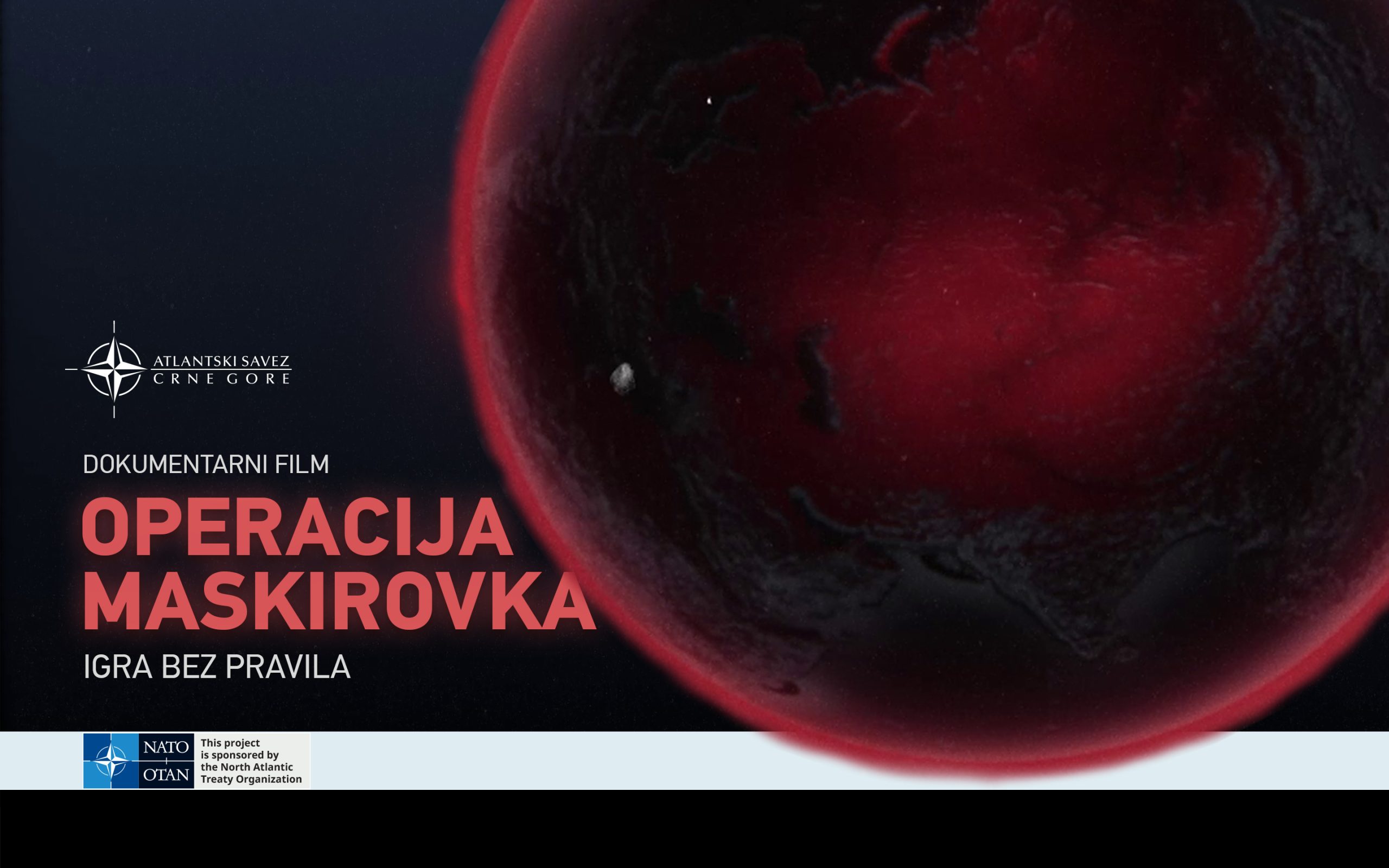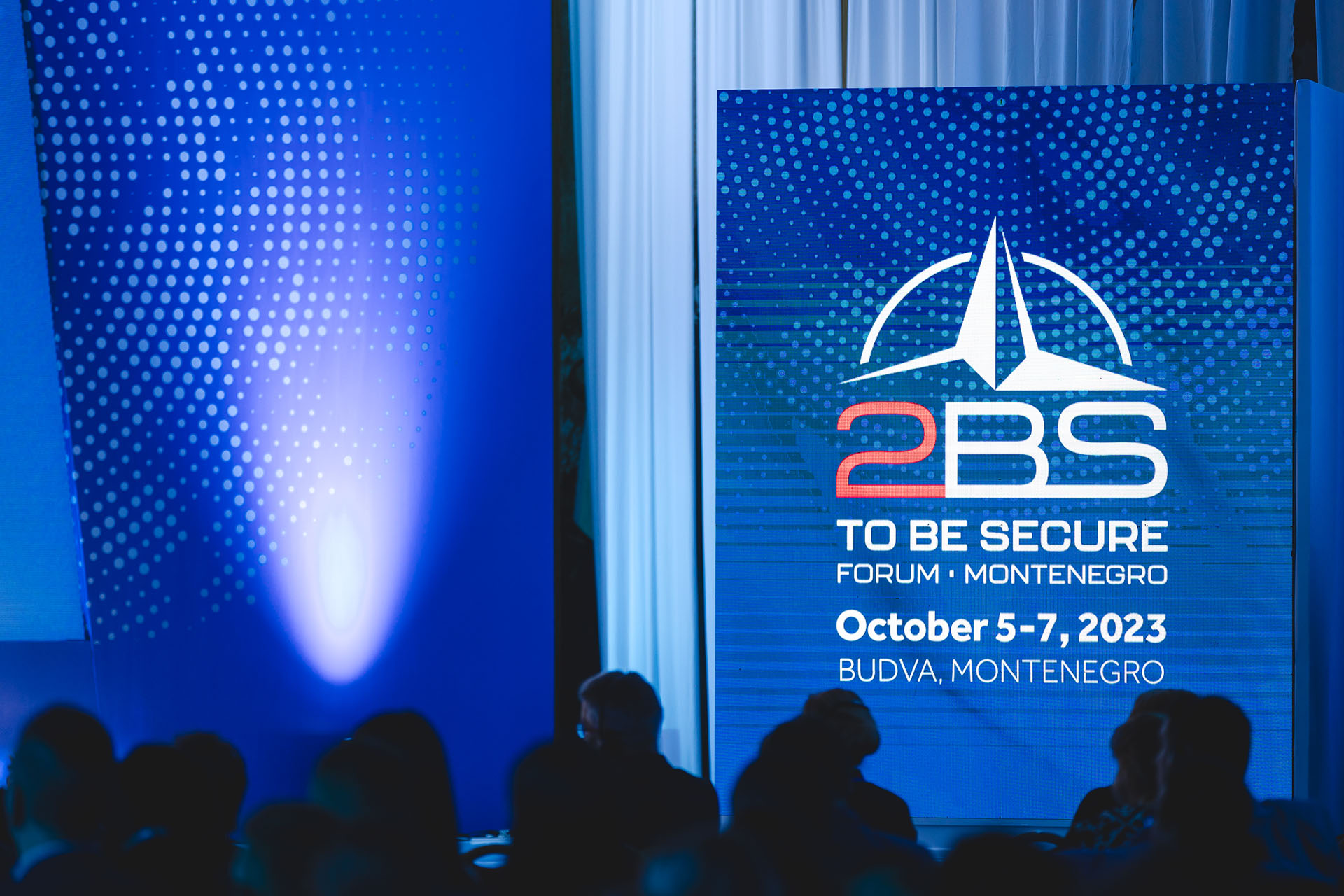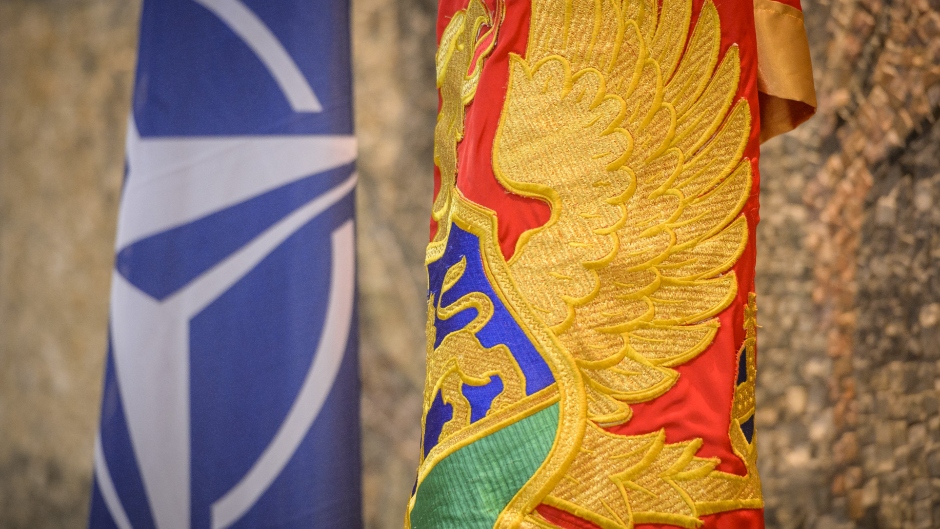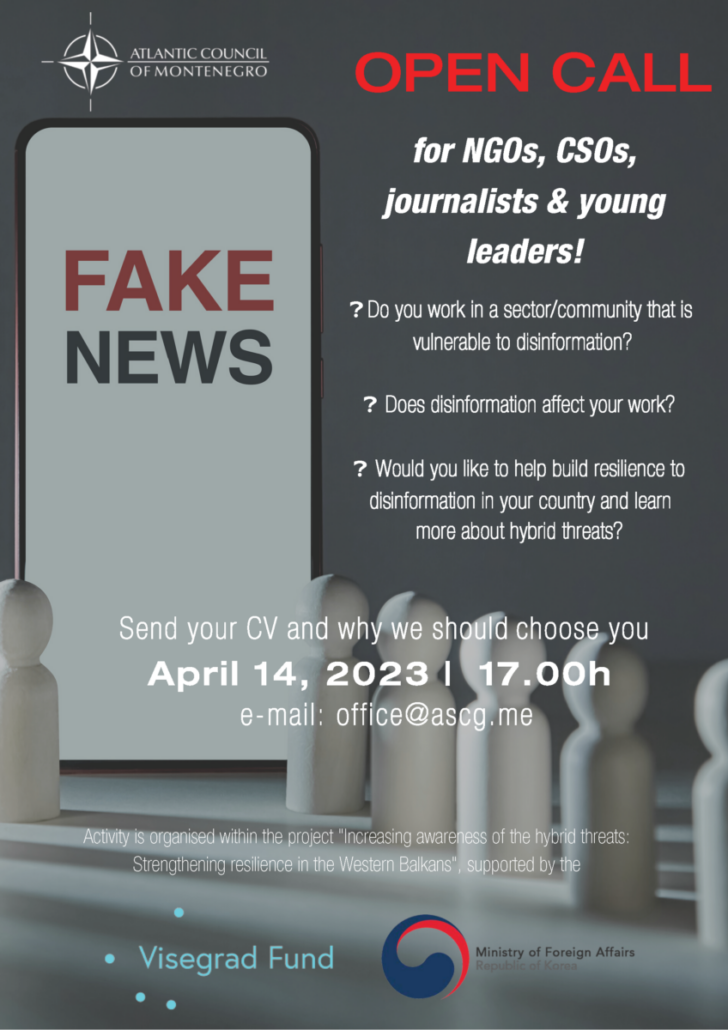Azra Karastanović, Program Manager at the Atlantic Council of Montenegro, contributed to a broad study China’s Engagement in Central and Eastern European Countries with an article entitled China Paves the Road for the Post-COVID-19 Era. This is a publication of the Austrian Institute for European and Security Policy. We are conveying the article integrally. The whole study can be found on the following link.
Abstract
China emerged as an actor in the Western Balkans arena with the onset of the global economic crisis in 2008. In the past decade, it has exerted strong economic influence in the region, mainly by using its Belt and Road Initiative (BRI) and the 17+1 mechanism to expand its infrastructure and technology footprint. In Montenegro this influence is mainly perceived through one high-profile infrastructure project; the Bar-Boljare highway. This paper will examine how the highway project shaped perceptions of China both for policy-makers and the wider public. In addition, it will examine three stages of China’s diplomacy outreach during 2020 and the onset of the COVID-19 pandemic, in order to establish if and how political and public perceptions of China among Montenegro’s policy-makers and the public changed as a result.
Keywords China, Montenegro, COVID-19, influence, perception
Introduction
The Western Balkans have a bearing on the geopolitical and geostrategic interests of many external actors, and constitute an area of competition among them. Over the years, Montenegro has progressed on its path towards EU and NATO membership, accomplishing the latter in 2017. However, much-needed reforms, in the areas of the rule of law, improving economic standards and fighting corruption, still burden Montenegro and make it susceptible to diverse external influences.
In the context of diminished US involvement in the past decade, the EU’s internal problems and enlargement fatigue, and Russia’s direct influence and constant rivalry on these two fronts, China has presented itself as a strong alternative partner. China’s influence and presence in Montenegro is symbolised by the high-profile Bar-Boljare highway project, being built by a Chinese company, and paid for by a loan from Export-Import Bank of China (Exim Bank) taken out by the Montenegro government in 2014. This paper will examine how this particular project shaped both
political and public perception of China, as well as whether and how these perceptions changed as a result of the coronavirus pandemic.
When There is a Motive, There are Means
The Western Balkans became an opportunity and a medium for China’s geopolitical agenda. Montenegro, as a coastal country and a frontrunner in the EU accession process, provides the authoritarian Chinese regime with a strategically advantageous entry point into Europe from the Adriatic Sea, and a means both to extend its influence in NATO and also potentially to shape European policies.
Conley et al (2020, 4) note that
“Beijing has recognized the economic and geographic potential of the region and, perhaps most importantly, understands the region’s hunger for immediate infrastructure financing. In contrast, Western lenders have been hesitant to engage as strongly without corresponding reform commitments from the region’s leaders.”
China has been increasing its investment in the region from the onset of the global economic crisis and the power vacuum that the EU itself created. China’s infrastructure and technology footprint grew mainly within the framework of the BRI and the 17+1 format. Even though China’s activities are not yet perceived as directly hampering the EU accession process for the Western Balkans, BRI infrastructure projects are causing concerns about violation of environmental standards, susceptibility to “debt-trap diplomacy” and the exacerbated risk of corruption. This inevitably has a bearing on the accession process.
Regarding Montenegro, though Chinese companies have been involved in several infrastructure and energy sector projects in the country, the primary economic leverage that China has exercised so far derives from the Bar-Boljare highway construction project. China, however, is not the dominant source of FDI in Montenegro. In 2017 it barely registered on the list of investors with only €676,000 worth of investment. In 2018 and 2019, China was still not mentioned among the top 50 countries investing in Montenegro. However, in 2020, in the midst of economic disarray caused by the COVID-19 pandemic, China became the largest investor in Montenegro providing
FDI worth €70 million in the first half of 2020 according to a Central Bank of Montenegro report (Central Bank of Montenegro, 2021 and Kajosevic, 2020).
To evaluate perceptions of China’s influence in Montenegro, it is helpful to look in detail at the highway project that has such a significant impact on Montenegro’s financial stability and prospects.
Impressive Construction, Leading Nowhere?
Back in 2014, in the face of many warnings about its financial and economic viability, the Government of Montenegro went ahead with this project, that is supposed to shorten journey times, stimulate business and connect the country with major European travel corridors. The new highway is designed to connect the Montenegrin port city of Bar with Boljare on the Serbian border and ultimately with Belgrade, the Serbian capital and the largest city in the Western Balkans. In 2014, Montenegro borrowed €809 million from Exim Bank to build the first section of the highway, to be constructed by the China Road and Bridge Corporation (CRBC), a large state- owned Chinese company (Barkin and Vasovic 2018).
The project has been shrouded in secrecy from the very beginning. Many documents related to the project are classified as confidential, and are still unavailable to the public. Furthermore, the intergovernmental agreement, credit arrangements and contract circumvented the open tender process, exempting CRBC and all subcontractors from paying VAT or customs duties. On top of that, the contract also stated that if Montenegro could not repay its loan within the specified timeframe, Exim Bank would have the right to some of its territory (Hopkins and Kynge, 2019). Any arbitration would be conducted according to China’s laws (Hopkins and Kynge, 2019), which patently leaves little if any chance for Montenegro to win any potential disputes.
Put in figures, the first of the four construction phases will eventually cost Montenegro around
€1.3 billion, equivalent to a quarter of its 2018 GDP (Investitor 2019; Al Jazeera Balkans 2020). This has caused a surge in Montenegro’s public debt; according to an International Monetary Fund (IMF) estimate, it would cause the GDP-to-debt ratio to balloon over 82% in 2020, compared with a predicted ratio of 59% assuming no highway spending (IMF Country Report, 2019:5 and 2020).
The construction of the first phase has been delayed due to the outbreak of the COVID-19 pandemic. After four extensions of the deadline it is now expected to be finished in the autumn of 2021. The first annual payment of the loan, $67.5 million, is due in 2021 as well. In the meantime, Montenegro has twice tried and failed to secure funding from the European Investment Bank for the second section of the highway (Kajosevic, 2020).
Taking into consideration possible harm to Montenegro’s prospects arising from Chinese debt- trap influence, in 2018 the Government of Montenegro applied for co-financing for the construction of the second section of the highway under the Western Balkans Investment Framework. As indicated in the European Commission’s Montenegro Report 2020, the application has been put on hold pending the finalisation of the cost-benefit analysis for the entire Bar-Boljare highway. This study, already somewhat delayed, is expected to set recommended standards and suggest means of financing for the remaining sections. In June 2020, the Government also requested funding from the IMF under the Rapid Financing Instrument (RFI), indicating that it would “not undertake the construction of further phases of the Bar-Boljare highway or other large capital expenditures that could jeopardize debt sustainability.” (IMF, 2020).
Currently uncertainty hangs over the continuation of the second phase of the highway’s construction. Construction on the Serbian end has been halted. It seems that physically, this impressive infrastructure project leads nowhere; and financially, it could lead to bankruptcy.
Unfortunately, due to the serious impact of the coronavirus on the Montenegrin economy, in place of anticipated growth of 3-4%, GDP has experienced a decrease of 14.2%, which has pushed the GDP-to-debt ratio to 90% in 2020. That, along with the new administration’s recent debt figure of
€750 million, means that in 2021 this will surge over 100% (Bankar, 2020). Uncertainty due to the ongoing pandemic, high public debt, and political and social tensions could discourage potential investors. A lack of healthy investment puts Montenegro in an even more difficult position by creating a climate that fosters further unfavourable loans.
After the change in government, following elections in August 2020, the new administration that took power in December 2020 set up a new National Council for the Fight against High-Level Corruption to investigate and combat endemic corruption in Montenegro. On 27 February, the Council announced that they would instruct all state bodies and institutions to provide any
information and data they may have related to the highway construction (Vijesti, 2021). In addition, some media sources and civil society organisations (CSOs), in particular the Network for Affirmation of the NGO Sector (MANS), have been raising concerns about the lack of transparency in planning and contracting, as well as the environmental impact of the whole highway project.2 It is vitally important for the new government to curb already high dependence on China and to avoid a debt spiral that could potentially influence Montenegro’s foreign policy orientation and democratic progress.
Despite these efforts, exposing China’s harmful influence and footprint in Montenegro is very difficult, given that the country’s media mostly “paints a pretty picture” of China based on its economic and political successes. According to Milica Kovacevic from the Centre for Democratic Transition (CDT), her research has showed that Montenegrin media reports on China are mostly positive, highlighting successes in science, art, infrastructure, and technology, while articles on the Chinese political system, the quality of life of its citizens, and social inequalities are rare (Kovacevic, 2021).
Two factors influence this state of affairs. First, the dependence of most newspapers and media outlets in Montenegro on advertising, which tends to lead to sponsored articles; and second, the republication of articles and information coming from Serbia (due to the shared language), where coverage of China is predominantly positive.3 In such a media landscape, public perception of China’s presence and influence is bound to be unbalanced.
According to the International Republican Institute’s (IRI) Western Balkans Regional Poll in 2020, 50% of respondents in Montenegro consider China as the most important economic partner, ahead of the US, Germany, Russia, and Turkey. On the other hand, 34% of respondents consider China the most important political partner. However, probably more indicative data is that only 12% of
respondents consider China as the most significant political threat which is lower than all the other options: the US, Germany, Russia, and Turkey.
Has the COVID-19 Pandemic Changed or Reinforced Perceptions of China?
The onset of the COVID-19 pandemic has put China at the centre of global discussions including those of the Western Balkans. As Anastas Vangeli (2021) argues, discourse on China in the Western Balkans during the COVID-19 pandemic progressed through three stages: in the early stage (January – March 2020) the central topic was the onset of the outbreak in China; in the second stage, as the outbreak in China reduced and outbreaks elsewhere in the world peaked (April – September 2020), the discussion focused on “mask diplomacy” and China’s efforts to position itself as a global humanitarian player; and the final stage (October 2020 to the present), with what has become known as “vaccine diplomacy” where geopolitical competition extends to include COVID-19 vaccines and impacts on the Western Balkans as well.
Similarly to the rest of the world, when COVID-19 first started spreading outside China, discourse in Montenegro showed an increase in negative perceptions of China. As the virus spread, information, disinformation, and conspiracy theories proliferated. According to the Digital Forensic Centre’s (DFC) monitoring for March 2020, identifiable narratives included claims that the virus was a biological weapon created in China and used to re-distribute economic and geopolitical power; and that China and Russia were hiding the real numbers of infected people (DFC, 2020). Thus, negative perceptions of China, sweeping through many Western countries, did not circumvent the Western Balkans. This was the moment where public diplomacy hit the stage. Many Chinese ambassadors around the world, including the Ambassador to Montenegro, tried to present official views (Kosovic, 2020) including the Chinese government’s success in countering the virus. Measuring the impact and influence of such public outreach is very difficult. However, it is relevant to mention the DFC analysis (2020) of an interview with the ambassador, which identifies some disputable content, from falsified timelines to imperfect transparency and doubts regarding the number of actual cases in China.
The “mask diplomacy” stage is marked by Chinese efforts to position itself as the most successful country in combating the coronavirus, and as a humanitarian benefactor reasserting its geopolitical
importance worldwide. Confronting the devastating effects and casualties of the pandemic around the world, many international institutions struggled with their initial response. This presented the opportunity for China to embark on a more proactive form of diplomacy and provide medical equipment, human resources, and pharmaceuticals. It is hard to imagine that any country, especially those of the Western Balkans that had been struggling with medical equipment shortages, would refuse such assistance. At this point, one should consider the pros and cons of urgent necessity versus not so urgent ideology.
During this period, China provided Montenegro with medical masks, tests for coronavirus and medical protocols on treating and containing the virus as well as offering relevant expertise.4 In Serbia, President Aleksandar Vučić praised China’s generosity and help during the pandemic on one side and criticised the EU’s lack of solidarity on the other (Zoric, 2020). The famous “Thank you, Brother Xi” billboard, together with the huge pro-government network of “bot” accounts that praised the Chinese aid and friendship between the two countries5, set the stage for the success of this “mask diplomacy”.
In contrast to Serbia, policy responses and expressions of gratitude toward China in other Western Balkan countries (Montenegro included) were more formal and cautious. This can be illustrated in the words of the former Minister of Foreign Affairs, Srdjan Darmanovic. In an interview, Darmanovic expresses gratitude towards China for all the help it provided and its valuable experience of fighting the pandemic in Hubei Province. However, he also points out that even before the pandemic, there had been a serious crisis in trade relations between the United States and China.
“With all this in mind, the coronavirus pandemic could contribute to a certain redefinition of international relations, and in the Euro-Atlantic community, perhaps the role of China could be viewed differently than a few months ago. If this were the predominant direction it would, for sure, be reflected in our region as well” (MVP, 2020).
This more nuanced discourse prevailed throughout the whole of the “mask diplomacy” stage.
The shift from “mask diplomacy” to “vaccine diplomacy” began around October 2020 with the development and distribution of vaccines against COVID-19, and will likely continue well into 2021. A new field of competition and influence emerged as pharmaceutical companies raced to develop the vaccine. Unfortunately, amid the political changes after the elections in August 2020, the appointment of the new government in December 2020, and slow health service responses, the Montenegrin vaccine rollout started only at the end of February 2021. The first vaccines were procured through Serbia’s donation of 2,000 doses (Vlada Crne Gore, 2021). The Government of Montenegro had previously refused to accept the donation of 100,000 vaccines from a Russian charity, the Oleg Deripaska Foundation “Volnoye delo” (Pobjeda, 2021). Apart from regular channels of bilateral negotiations to procure the vaccines6, it is important to mention that China has approved the donation of 30,000 doses of the Sinopharm vaccine to Montenegro (Radio Slobodna Evropa, 2021). This is another example of how China perceives the importance of this region in their geopolitical efforts and the impetus that it gives to their healthcare diplomacy in general.
Another mechanism employed for this purpose was the 17+1 Summit that took place in February 2021. Like a number of other regional leaders, the President of Montenegro, Milo Đukanović took part in the summit. While reasserting Montenegro’s pro-Western orientation and ongoing EU integration process, as well as thanking China for its assistance, he also expressed Montenegro’s willingness to make cooperation with China more practical through opportunities provided by the 17+1 Mechanism, and to achieve more concrete results in areas of common interest (Predsjednik Crne Gore, 2021). It is important to note that China-convened summits are places where invitees customarily express gratitude for aid provided and willingness to increase cooperation through
joint ventures. However, President Đukanović is one of few regional leaders who, for the past two years, has increasingly been expressing concerns about China’s influence in the region.
Conclusion and Recommendations
The emergence of Chinese influence in the Western Balkans area came with the onset of the previous global economic crisis (2008). Certainly Beijing has tried to reassert its role and influence during the COVID-19 crisis, and will continue to do so in 2021. China is the only major world economy to report economic growth during the pandemic-ravaged year of 2020 (WSJ, 2021). This gives China an advantage while the rest of the world is trying to recover. For countries in transition and with weak democratic institutions, such as Montenegro, this means constantly reacting to major geopolitical and international shifts, which inevitably constrains the process of domestic democratization. Given that, in addition, China is building such a high profile infrastructure project in Montenegro, bringing with it very large debt issues, it is a matter of concern that one day China could use this leverage to exert influence on Montenegro, both domestically and in terms of foreign policy orientation.
Unlike Serbia, which has persistently reached out to secure China’s assistance while praising their cooperation, the rest of the Western Balkan countries were more cautious in their public discourse towards China even before the pandemic. As this paper argues, this element of caution in political elite discourse has more or less persisted throughout the pandemic. However, the massive economic impact of this crisis, and the ongoing battle with COVID-19 continue to impose strong political and financial pressure on Western Balkan countries, and may shape their future policies.
Both the EU and the US should reassess the evolving geopolitical situation and adopt a clearer and more comprehensive strategy for the Western Balkans. With the new Biden administration, many in the Western Balkans are looking towards the US with an expectation of commitment and a revival of processes that have been “on hold” for some time. However, the key question is not
“why China, or any other major power, has interests in the region?” It should rather be “when will Europe realize that the Western Balkans should be its primary interest?”
Unfortunately, in the contemporary world it appears that perception is reality. Whoever is better at shaping this perception will prevail. If the EU does not undertake a more proactive approach, another power will take its place, pointing out facts and figures regarding its economic support and investments in the region, and further enhancing its visible engagement. Europe needs a clear strategy, a proactive approach, and enhanced visibility towards the region. This, however, will not happen on its own. Setting up a dedicated group of EU countries that are willing to lead and enhance this process might be a good start.
Disclaimer: The views and opinions expressed in this article are those of the author and do not necessarily reflect the official policy or position of the Atlantic Council of Montenegro.
References
Al Jazeera Balkans (2020). Javni dug Crne Gore naredne godine veći od četiri milijarde eura. https://balkans.aljazeera.net/news/economy/2020/7/21/javni-dug-crne-gore-naredne-godine-veci- od-cetiri-milijarde-eura Accessed 28 February 2021.
Barkin, N. and Vasovic, A. (2018). Chinese “Highway to Nowhere” Haunts Montenegro.
Reuters, 16 July. https://www.reuters.com/article/us-china-silkroad-europemontenegro- insi/chinese-highway-to-nowhere-haunts-montenegroidUSKBN1K60QX
Accessed 28 February 2021.
Bankar. Korona povećala javni dug i skresala investicije. 27 December 2020. https://www.bankar.me/2020/12/27/korona-povecala-javni-dug-i-skresala-investicije/. Accessed 28 February 2021.
Conley, Heather A. et al. China’s “Hub-and-Spoke” Strategy in the Balkans. A Report of the CSIS Europe Program and the Reconnecting Asia Project. CSIS. Washington DC. https://csis-website- prod.s3.amazonaws.com/s3fs- public/publication/200427_ChinaStrategy.pdf?4LtK1j9.x9mkUNibN_vhkiZGtCauyH0w Accessed 21 February 2021.
Central Bank of Montenegro. Platni bilans. https://www.cbcg.me/me/statistika/statisticki- podaci/ekonomski-odnosi-sa-inostranstvom/platni-bilans. Accessed 27 February 2021.
Digital Forensic Center. Everything That The Chinese Ambassador Hid. 17 April 2021. https://dfcme.me/en/everything-that-the-chinese-ambassador-hid/. Accessed 1 March 2021.
Digital Forensic Center. Infographic: A Monthly Overview. 2 April 2020. https://dfcme.me/en/infographic-a-monthly-overview/. Accessed 1 March 2021.
Hopkins, V. and Kynge., J. “Montenegro Fears China-Backed Highway Will Put it on Road to Ruin.” Financial Times, 10 Apr. 2019. https://www.ft.com/content/d3d56d20-5a8d-11e9-9dde-
7aedca0a081a Accessed 28 February 2021.
Investitor (2019). “Već “ispucano” 85 miliona eura naknadnih radova: Autoput ćeko štatio ko 30 miliona eura po kilometru?”, 11 May 2019. https://investitor.me/2019/05/11/vec-ispucano-85-miliona- eura-naknadnih-radova-za-autoput-30-mil-po-km/ Accessed 28 February 2021.
International Republican Institute (2020). Western Balkans Regional Poll February 2, 2020 – March 6, 2020. Center for Insights in Survey Research. https://www.iri.org/sites/default/files/final_wb_poll_for_publishing_6.9.2020.pdf. Accessed 28
February 2021.
Kajosevic, S. (2020a). China Replaces Russia as Largest Investor in Montenegro. BalkanInsight, 20 October 2020. https://balkaninsight.com/2020/10/20/china-replaces-russia-as-largest-investor-in-
montenegro/. Accessed 27 February 2021.
Kajosevic, S. (2020b). Montenegro Forced to Extend Deadline for Chinese to Finish Highway. Balkan Insight. BIRN. 30 September 2020. https://balkaninsight.com/2020/09/30/montenegro-forced-to-
extend-deadline-for-chinese-to-finish-highway/. Accessed 28 February 2021.
Kovacevic, M., Uticaj, K. u Crnoj, G.: Podsticaj ekonomskom razvoju ili put u zavisnost? Atlantska Inicijativa. Newsletter .7 February 2021. https://atlantskainicijativa.org/uticaj-kine-u-crnoj-gori-
podsticaj-ekonomskom-razvoju-ili-put-u-zavisnost/. Accessed 28 February 2021.
Kosovic, S. Vijesti. Intervju Ambasador Kine: Protiv COVID-19 niko ne može sam. 15 April 2020. https://www.vijesti.me/vijesti/drustvo/430487/protiv-covid-19-niko-ne-moze-sam. Accessed 1
March 2021.
Ministarstvo vanjskih poslova. Ministar Darmanović u intervjuu agenciji Mina: EU neće izgubiti iz vida važnost politike proširenja. 26 April 2020. https://mvp.gov.me/vijesti/224022/Ministar- Darmanovic-u-intervjuu-agenciji-Mina-EU-nece-izgubiti-iz-vida-vaznost-politike- prosirenja.html. Accessed 1 March 2021.
“Montenegro: 2019 Article IV Consultation.” International Monetary Fund Country Report 19/293, Sept. 2019. https://www.imf.org/en/Publications/CR/Issues/2019/09/09/Montenegro-2019-Article-IV-
Consultation-Press-Release-Staff-Report-and-Statement-by-the-48667 Accessed 1 March 2021.
“Montenegro: Request for Purchase under the Rapid Financing Instrument; Press Release, Staff Report, and Statement by the Executive Director for Montenegro.” International Monetary Fund. 25 June 2020. https://www.imf.org/en/Publications/CR/Issues/2020/06/25/Montenegro-Request-for-
Purchase-under-the-Rapid-Financing-Instrument-Press-Release-Staff-49535/ Accessed 28
February 2021.
“Montenegro 2020 Report.” European Commission. 6 October 2020. https://ec.europa.eu/neighbourhood-
enlargement/sites/near/files/montenegro_report_2020.pdf Accessed 28 February 2021.
Predsjednik Crne Gore. Govor predsjednika Crne Gore Mila Đukanovića na Samitu Kina-zemlje Centralne i Istočne Evrope (17+1). 9 February 2021.
http://www.predsjednik.me/view_page.php?id=1332. Accessed 1 March 2021.
Pobjeda. Zbog politike odbili 100.000 vakcina Deripaskine fondacije. 29 January 2021. https://www.pobjeda.me/clanak/zbog-politike-odbili-100000-vakcina-deripaskine-fondacije. Accessed 1 March 2021.
Radio Slobodna Evropa. Kina donirala 30.000 doza vakcina Crnoj Gori, stižu uskoro. 18 February 2021. https://www.slobodnaevropa.org/a/31109677.html. Accessed 1 March 2021.
The Wall Street Journal. China Is the Only Major Economy to Report Economic Growth for 2020. https://www.wsj.com/articles/china-is-the-only-major-economy-to-report-economic-growth-for- 2020-11610936187. Accessed 2 March 2021.
Vangeli, A. Western Balkan Discourses On and Positioning Towards China During the COVID-19 Pandemic. Prague Security Studies Institute. February 2021. Prague. https://www.balkancrossroads.com/covid-19-dicourses-on-china-in-wb. Accessed 28 February 2021.
Vijesti. Savjet istražuje šverc cigareta i auto-put. 27 February 2021. https://www.vijesti.me/amp/516179/savjet-istrazuje-sverc-cigareta-i-auto- put? twitter_impression=true. Accessed 28 February 2021.
Vlada Crne Gore. U Crnu Goru iz Srbije stigao prvi kontingent od 2000 doza ruskih vakcina Sputnik V.
17 February 2021. https://www.gov.me/vijesti/239386/U-Crnu-Goru-iz-Srbije-stigao-prvi-
kontigent-od-2000-doza-ruskih-vakcina-Sputnik-V.html. Accessed 1 March 2021.
Zoric, O. Kina i Srbija: ‘Čelično prijateljstvo’ u doba korone. Radio Slobodna Evropa. 18 March 2020. https://www.slobodnaevropa.org/a/srbija-kina-eu/30495105.html. Accessed 1 March 2021.








